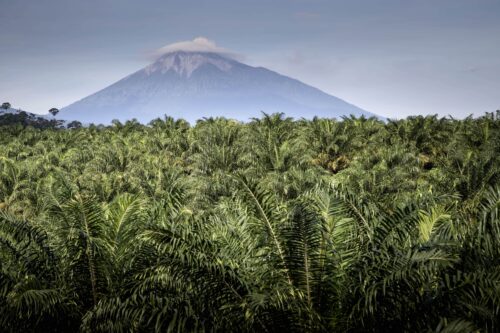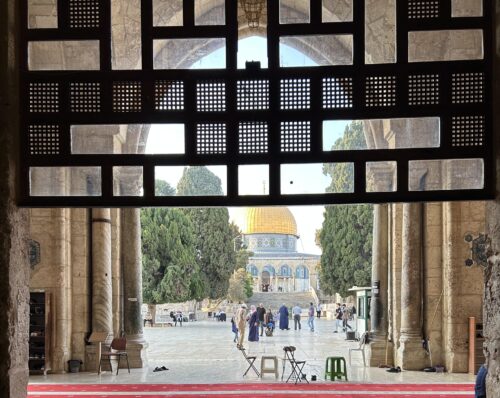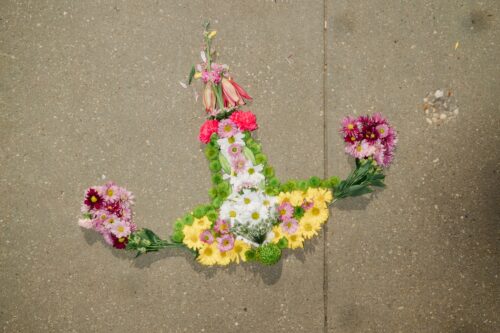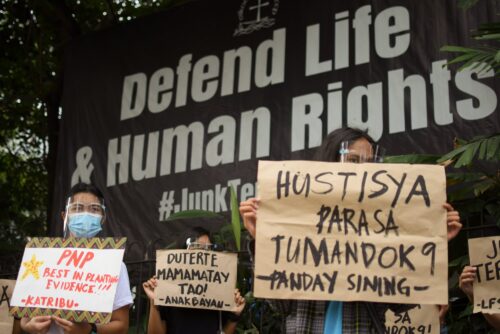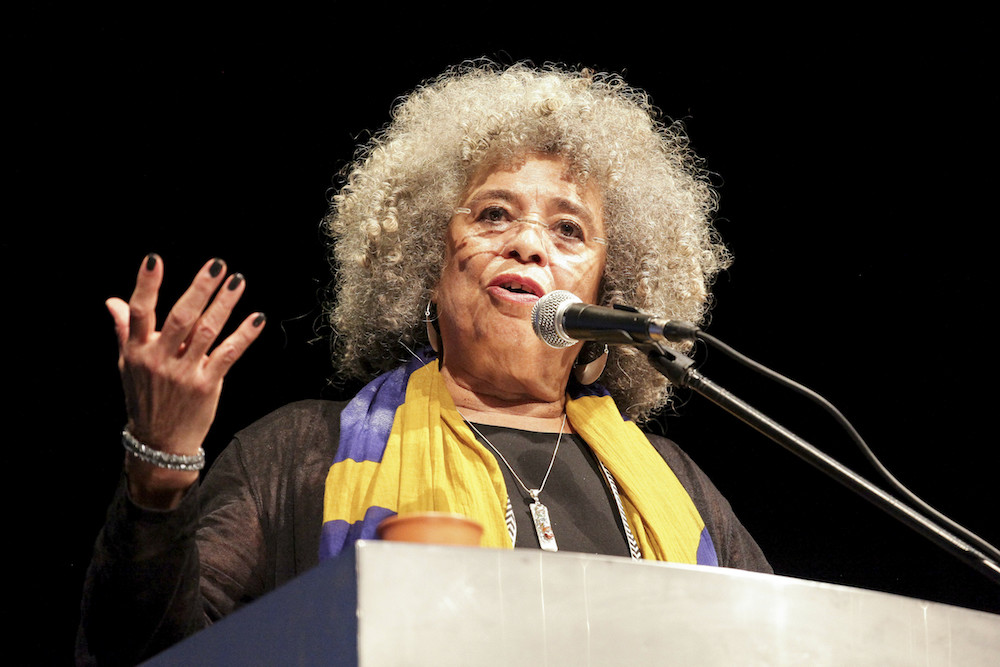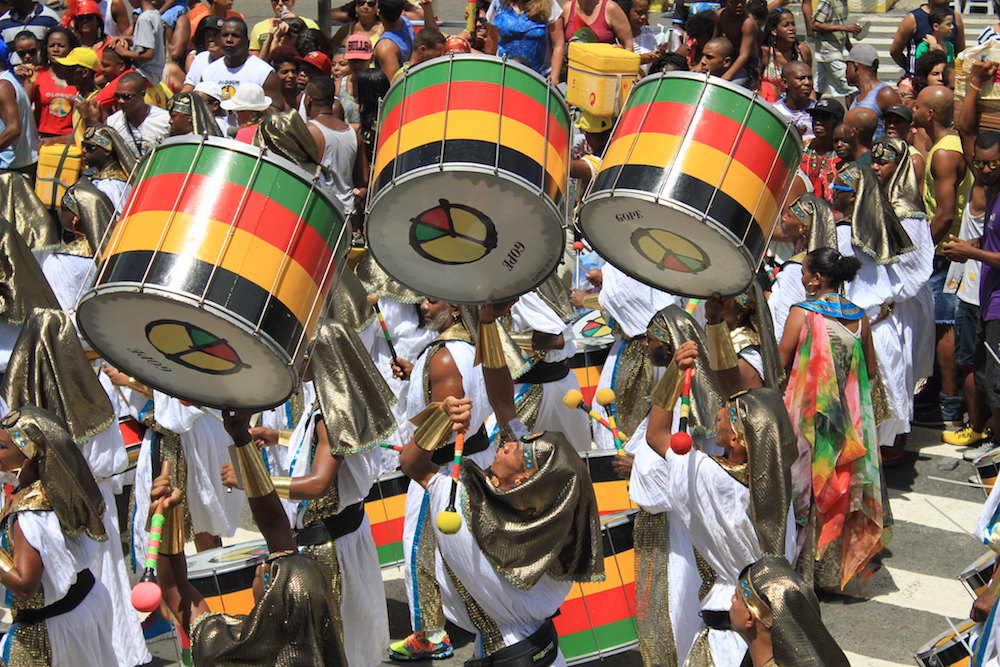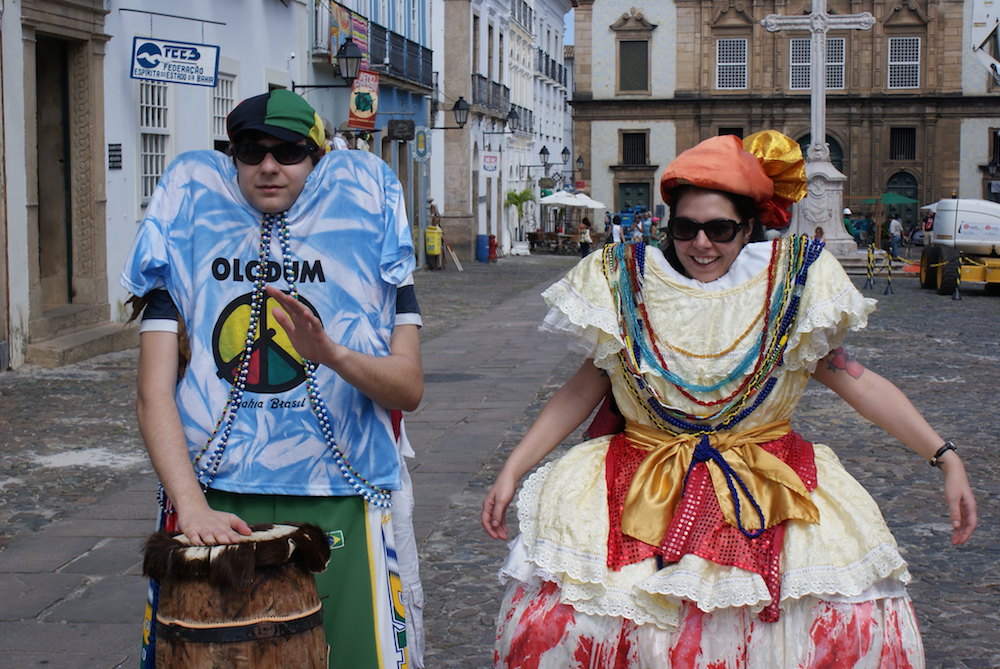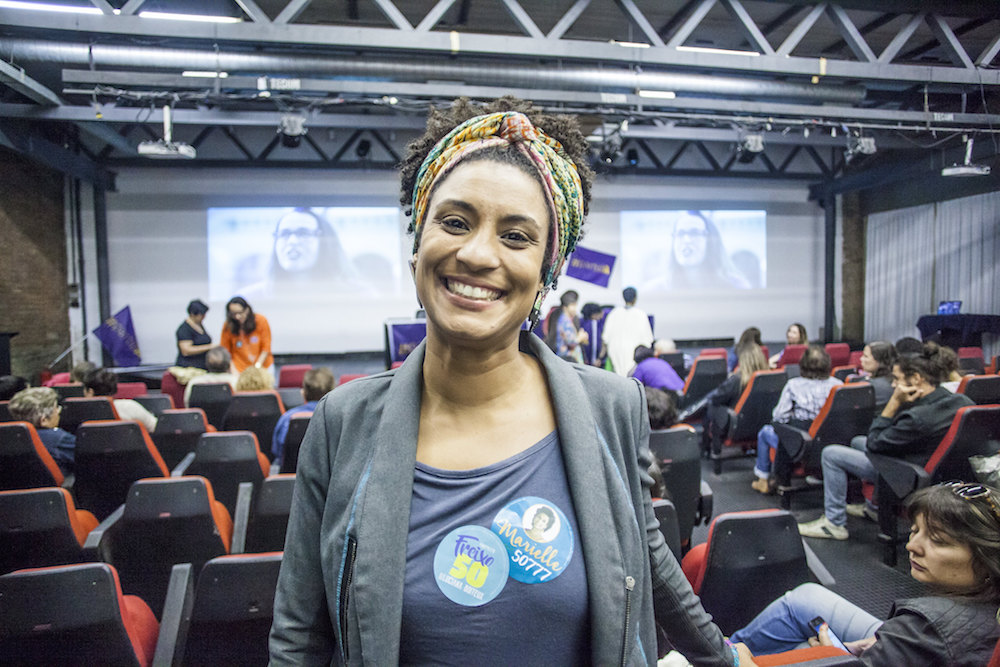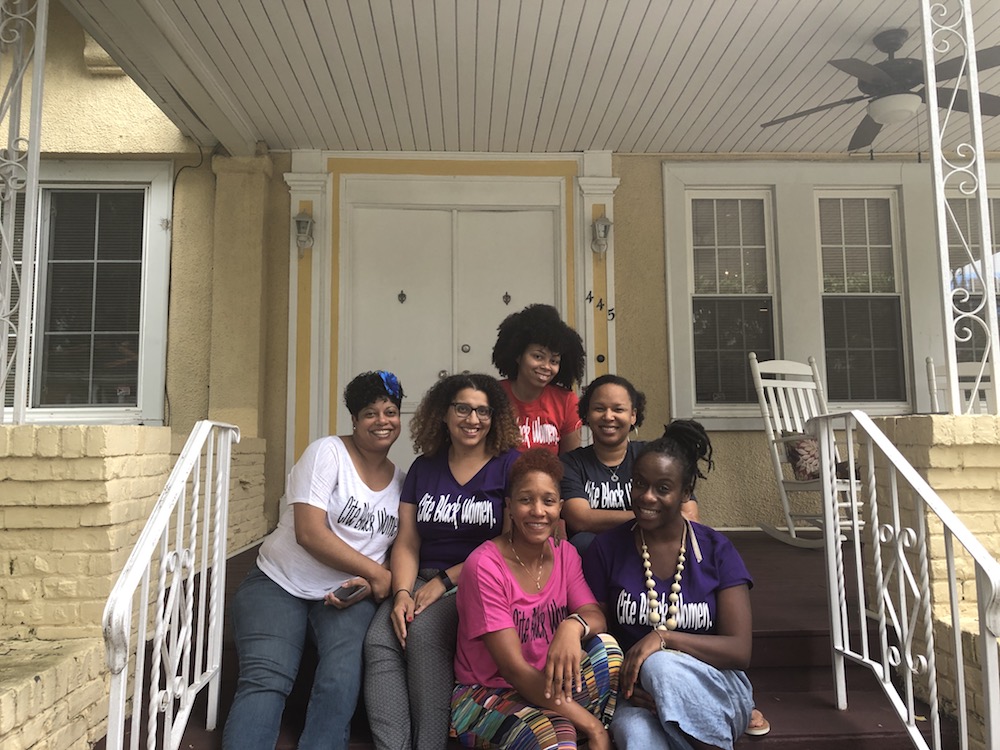Combating Anti-Black Racism in Brazil and Beyond

As the United States continues to reel in the aftermath of the killing of African American George Floyd by former Minneapolis police officer Derek Chauvin, news coverage has shown how the most recent fight against anti-Black racism, colonialism, and white supremacy has been taken up in countries around the world.
Floyd’s death was the catalyst for recent and ongoing particular protests, the toppling of statues of slave traders and colonizers, and the cries of “Black Lives Matters” in a multitude of languages. So, it is easy to assume that the United States is the place of origin for resistance against police violence and demands for protecting and valuing Black lives. But the work of Black anthropologists and others who study the connections between racism and police brutality highlights that these issues and the movements countering them are not uniquely U.S.-based. The recent string of incidents are part of a long-running global phenomenon.
Christen A. Smith, an associate professor of African and African diaspora studies and anthropology, and the director for the Center for Women’s and Gender Studies at the University of Texas at Austin, has spent decades studying anti-Black racism, particularly in Brazil—the nation with the largest Afro-descendant population outside of Nigeria. The 2010 Brazilian census revealed that 91 million Brazilians—just over half of the nation—reported that they are of African ancestry. In 2019, in Rio de Janeiro alone, more than three-quarters of the 9,000 people killed by police were Black men.
SAPIENS fellow and anthropologist Eshe Lewis spoke to Smith by Zoom this June. This interview has been edited for length and clarity.
What does this moment in history mean to you?
As devastating as this time is with the deaths of these Black people who should be with us now—and as devastating as this moment is with COVID-19—I think about James Baldwin’s [essays about race in America] The Fire Next Time. [To paraphrase his words], it is as devastating as it is beautiful.
We are at the worst of our times, and we are at the best of our times.
As a Black feminist, that’s what I feel right now. It’s not to downplay the deaths, but for those of us who have been doing this work, those deaths never stopped. The exception in this moment is not the death of Black people, it is the way the resistance has been organizing and the audience that it’s gotten.
There have been calls in some cities to not just change policing but abolish it entirely, promoting the idea of using those resources to address the root causes of violence and inequality. What do you think of that?
I think for me, right now, what’s resonating the most is the way that protests have really been organized around Black feminist principles of abolitionism. For the first time in my lifetime, there is a widespread public outcry to defund the police that is entering the mainstream. “Abolition” previously was this dirty word; people were not even willing to have a conversation about it.
Angela Davis has been denouncing the prison system since her own incarceration in the 1970s and has been one of the most outspoken proponents of abolitionism and decarceration. Davis and Ruth Wilson Gilmore are the generative foremothers of this movement. Then there are all of the Black feminist organizations over the years that have built this movement, from Critical Resistance to Incite!
I never in a million years thought that I would see mainstream society discussing and debating anti-Blackness, white supremacy, and the abolition of and defunding of the police, but, thankfully, here we are.
Some Afro-Brazilian activists and critical thinkers—like those in the Movimento Negro Unificado—have been describing Brazilian state policies and interactions with Black communities as “genocidal” since the 1970s. What can Brazil teach the U.S. and the world more broadly about anti-Black racism?
The vast majority of the time we start in the U.S. and we look outward, and I think that’s absolutely not the way we should look at things. I think that if there are echoes of the protests that are happening in the U.S. and [occurring] elsewhere right now it is because Black organizers in other places like Brazil are seeking to harness some of the moment to put [the focus] back on home.
So, what can we learn from Brazil? First of all, something I have learned from organizers here and there is that this is not an issue that is a national one; it is a transnational one.
Second, we can learn that this is not about racism: “Racism” is a concept that has been too watered down to be effective at this moment. It doesn’t have the specificity needed, in my opinion, to get at the heart of the problem. Instead, we need to focus on anti-Blackness and white supremacy.
You coined the phrase “Afro-Paradise” to describe the conflicts of a society that simultaneously sap Black labor, celebrate Black bodies, consume Black culture, and kill Black people. How do these things overlap?
I think it is important to recognize that the fetishization of Black culture and Black people has always been linked to killing and torturing Black people in the modern Americas. This paradox exists throughout the region and often also repeats itself where we find anti-Blackness around the world.
I first went to Bahia [Salvador da Bahia, Brazil, a city often referred to as the Black Mecca] in 2001. I was interested in researching how Afro-Bahians express their Black identity through poetry and theater. Everyone had painted Salvador as this wonderful place: “Oh, you’re going to love Bahia! Bahia is such a Black space, you’re going to feel so comfortable there!”
I got there, and it was a nightmare. It was the most racist, most retrenched and violent place I had ever been in my life. I hated it. I mean, I hated it. Through deep conversations with local organizers working in the Black Movement, I realized that my frustrations with Bahia were rooted in the ways that white supremacy and, ironically, anti-Blackness are deeply embedded in Bahian culture and society.
The popular, mythical image of Bahia is consumed globally but also in Brazil. Brazilians fantasize about taking a holiday in Bahia so that they can enjoy a happy Black place. But this celebrated tourism is staged against a backdrop of Black kids getting killed in the streets, Black people getting shot in their homes, people going to prison and never getting a trial. The state terrorizes its own citizens in order to create the fantasy of Bahia as a celebratory, romantic Black paradise: Afro-Paradise.
Was there a particular moment when you really felt that paradox?
The first time I spent Carnival in Bahia it clicked. I was living there and witnessed the transition from pre- to post-Carnival. In the weeks leading up to Carnival, the city government came to “clean up” the neighborhoods. They sent fumigating trucks to my neighborhood, spraying toxic gas to kill pests. That act was symbolic. The police began to stage fine-toothed comb operations in the working-class, majority-Black neighborhoods, especially those close to Carnival routes. They use stop-and-frisk strategies, harassing street vendors and the homeless, raiding neighborhoods, and rounding people up randomly. So, the city of Salvador engages in this process that is about ridding the city of pests, and Black people are included in that.
This made me think: The city is preparing for an event that celebrates Black culture by killing Black people. Yet that preparation never really stops. It happens all year-round and has been happening since 1540, when the city was founded. The ethos of Bahia is literally built on this logic: You get rid of Black people, but you preserve this plastic version of Blackness for popular consumption. And it’s a very perverse tension.
There have been conversations regarding how to change policing in the U.S. What can others learn from policing in Brazil?
In Brazil, most of the police officers are Black, at least half of them are Black. Yet the diversity of the police force has no bearing on the lethality of their actions. That’s why we have to have a structural analysis of white supremacy in order to understand how anti-Black policing works. It’s not about individual attitudes (although attitudes do exacerbate the problem). The conceptual structure of policing as we know it in the Americas is based on a logic of anti-Blackness.
When the police put on their uniforms and go out on patrol, they are engaging in a performance that follows a script of white supremacy and anti-Blackness—regardless of their race, gender, class, political identifications, or their personal attitudes about race and racism.
For us to try to think that somehow interpersonal racism drives police violence, and not the structural ideologies that are produced by white supremacy, then we miss the boat on everything. Diversifying the police force will not save us because it is policing itself that is the problem.
We absolutely need to defund the police. Yet the local and state police forces are only the most acute node of this conversation—public schools police, social workers police, health care workers police. So, we need to be very careful about not diminishing this whole conversation and making it seem as if defunding the police force alone will solve all of our problems.
In 2018, in Brazil, the killing of Marielle Franco—an Afro-Brazilian community worker, politician, and bisexual—by a militia generated an immense demand for justice. Is Franco’s case an exception? What did her case reveal about how gender plays into police violence?
The close ties between Marielle’s assassination and police forces was not an exception. Black women are often harassed and killed by the police in Brazil. In this way, her killing mirrors the state violence that she spent her political and academic career denouncing. She wrote her master’s thesis on police violence, militias, police corruption, and anti-Black genocide in Rio de Janeiro. She was a threat because she spoke out against anti-Black policing in the halls of the city council. And she was actually sitting on national commissions that evaluate policing, corruption, torture, and police violence, and she knew how race, gender, and sexuality factored into all that.
The exception is in the public outrage that we see in response to her death. Usually, when Black women are killed by the police, we do not see this level of public and international outcry.
Marielle’s death is a signal of the ways that the state identifies Black women as politically dangerous, and I think those two scenarios are closely interlinked. I think Black women are frequently the targets of police violence, we just do not always recognize them as such. If you kill three of a mother’s children in front of her, she is also the target of your violence. That means you identify her as a political subject that threatens who you are and what you seek to do. Otherwise, why would you enact that kind of torture on someone? It’s perverse and deserves more of our attention.
We must begin to pick apart the layers of why Black women are a unique threat to the state and why the state especially targets Black women with its violence in certain ways. Marielle’s death is key to thinking through all of that.
You have addressed inequalities for Black women through your Cite Black Women movement. How did that start?
In 2017, I had the unpleasant experience of going to a conference and seeing someone present a PowerPoint that had parts of my book paraphrased and did not cite me. It was not the first time that my work had been plagiarized, paraphrased, appropriated, and not credited, but it was the moment when I said, Enough is enough. I walked out of the presentation, and I decided to make a T-shirt that said “Cite Black Women.” And I started wearing it to conferences. Little did I know that would start a movement.
I started selling the T-shirts at the National Women’s Studies Association meeting in Baltimore. I was presenting with a longtime friend and collaborator, Andrea Beatriz dos Santos, a co-coordinator of Reaja ou Será Mortx! and a co-founder of the Winnie Mandela School, an education program for children and youth run by activists in Salvador, Brazil. I wanted to help the school, so I donated the T-shirt proceeds to them. We sold out in 24 hours.
The project emerged out of my frustration and my desire to speak up and speak out, but what I discovered was that so many people felt the same way and had the same experiences, and so many people were hungering for this conversation. I never wanted it to be a business, so we’ve been donating the money. Most recently, we donated to Black Mamas Bail Out for Mother’s Day. It’s about supporting the community and building awareness.
How has that project expanded?
In 2018, we started the Cite Black Women podcast. The goal is to engage Black women’s work, acknowledge Black women’s work, give Black women the space to breathe, and also encourage people to cite and acknowledge the way that Black women have influenced their thoughts. I think that there had been a lively discussion in anthropology around this topic primarily because anthropology is really one of the most egregious disciplines when it comes to the erasure of Black women’s scholarship.
Cite Black Women is not only a hashtag or a social media movement, it’s also a research and intellectual imperative. For the most part, I would argue that Black female anthropologists are prolific, and we are not being recognized as part of the anthropological cannon.
That is where we are with Cite Black Women, and I think that it’s the tip of the iceberg.






















